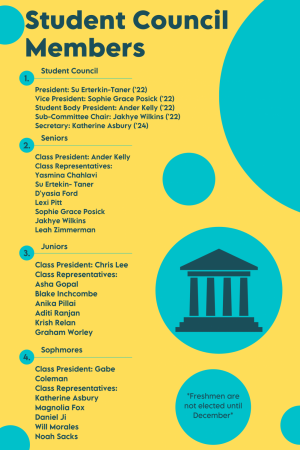No Homework, No Problem!
December 14, 2016
A Stanford study found that about 56 percent of all high school students consider homework to be their primary stressor. Less than 1 percent of individuals polled said that homework wasn’t a stressor for them. What would happen if you were to take away this major stressor? Ponte Vedra High decided it was time to experiment with this idea.
This year, a policy of optional homework was implemented. Students are able to decide if they feel they need to have extra practice with a specific subject matter. The high school also began using a system in which there are two versions of every test: a “pre” test and a “post” test. All the students take the pre test, but some are offered the option of the post test if they don’t do well on the first one. How do they earn this opportunity? The students that do all the homework assigned in a unit get to retake the corresponding unit’s test.
Camryn Koziarski, a junior at Ponte Vedra High, reported that she was, “very stressed last year.” Though she makes a habit of doing her homework every night, she says, “So far this year I have not been nearly as stressed.” Camryn believes her lowered workload this year plays a major role in her lowered stress levels.
Susan Gelb, front desk receptionist and parent to a teen at Ponte Vedra, reports that her daughter is much happier even when she has a tough night of homework because of the stress lifted with the new policy. She believes her daughter is still learning the material covered in class as well as she was with the required homework policy, however Gelb says she can’t know for certain considering, “We haven’t gotten our kids’ report cards yet.”
Many students at Bolles would love to see a similar change in our own policies regarding homework. Freshman Logan Smith appreciated the lowered stress levels the policy supported and said, “Sign me up for that! Send my transcript to Ponte Vedra!”
Bolles Freshman Trisha Chakravarty said, “Wow. I want that life. It would give me a chance to actually make my sleeping schedule normal again,” In addition, Chakravarty could, she said, “have a real social life again.”
In addition to students that feel homework has a negative impact on the mental state of the student body, faculty and staff, such as Head Librarian Mrs. Lange feel the same way.
Mrs. Lange said the high-stress situation homework is completed under makes some students perform more poorly than they normally would, and can also cause some students to become sick or suffer from a lack of sleep. “We have so many students that want to enjoy other aspects of their lives and join sports, clubs, art programs, etc. and just don’t have time.”
She added that, “It’s assumed that faculty has a life outside of work, but we don’t assume the same about students.” Mrs. Lange believes that the students deserve to be treated similarly to the staff, at least in this respect.
She added that she feels Bolles differs from Ponte Vedra in one respect, “I don’t think we need the reward. We don’t need to let kids retake tests. Few would actually take advantage of the situation. What we really need is an analysis of how they spend their time.”
She suggested lowering the amount of homework, but not getting rid of it entirely. After all, we do still need some practice. Mrs. Lange believes that if we lessen the students’ load, we’ll see, “brighter, well-slept, and more creative kids.”
Student stress levels seem to be a major concern of many Bolles teachers. History teacher Mrs. Chandler says that she understands that the collective homework students are taking home is difficult to complete. Chandler said, “We need to have a conversation about how the amount of collective homework kids have each night affects them and can cause them to have no opportunity to have a life outside of school.”
Some teachers defend homework, stating it does have its purpose.
Math teacher, Mrs. Quesada, stated implementing a policy similar to Ponte Vedra High’s would be a step in the wrong direction. She said the homework load is beneficial to students and helps to strengthen their skills, and that taking away homework entirely would likely result in a drop in Bolles’ academic success rates. She says to boost success rates at Bolles, “We look at our current policy’s results, then we change the policy to fit the problem at hand.”
Though the homework load may be large, Mrs. Quesada says, “Bolles teachers are committed to making homework necessary and helpful.”
The majority of our teachers don’t assign homework just because they want to give more assignments; most homework serves some sort of purpose relating to the lesson being covered.
If nobody did homework like reading, the reading would have to be done in class, which would be incredibly boring for teachers and students alike. The teachers wouldn’t get to teach you past what the textbook says, and your knowledge of the subject would be very minimal.





